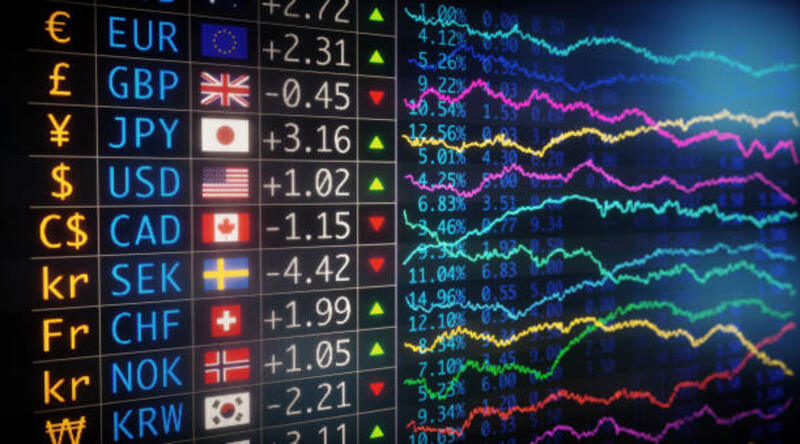Unearthing Profit in the Forex Market: Strategies for Success
Dec 01, 2023 By Triston Martin
Are you interested in finding new ways to maximize your profits in the Foreign Exchange Market? If so, it's time to get basic with forex. While foreign exchange trading can have its fair share of complexities and intricacies, a comprehensive understanding of the fundamentals can help set you apart from other traders in the market. With just a few simple strategies and some hard work, you too can unearth untold amounts of success and profit potential within the world of Forex. In this blog post, we will discuss how to take advantage of these strategies for optimal success!
What is the Forex Market?
The Forex market, short for foreign exchange market, represents the largest and most liquid financial market in the world with a daily trading volume exceeding $5 trillion. It operates 24 hours a day, five days a week, offering opportunities for traders to buy and sell currencies at any time. The market is decentralized, meaning that trading takes place directly between participants without a centralized exchange. Participants range from international banks and financial institutions to individual retail traders. The goal in Forex trading is to anticipate how one currency's value will fare against another. For example, if you believe the US dollar will strengthen against the euro, you would buy USD and sell EUR. Developing a deep understanding of economic indicators, market trends, and geopolitical events can enable a trader to make informed decisions in this volatile yet profitable market.
How to Get Started?
Before jumping into the world of Forex, it's important to establish a strong foundation. This involves familiarizing yourself with the basic terminology and concepts used in Forex trading, such as currency pairs, bid/ask prices, leverage, and margin. You can also open a demo account with a reputable broker to practice trading without risking real money. This will help you gain hands-on experience and develop your own trading style before committing to live trading.
Understand the Basics of Risk Management:

Understanding risk management in Forex trading is critical to long-term success. This entails deciding how much you're willing to risk on each trade, usually a small percentage of your total trading account. Implementing stop-loss orders is a common strategy to limit potential losses. Additionally, diversifying your trades can also aid in managing risk. By not placing all your funds in a single currency pair, you mitigate the chance of a single event wiping out a significant portion of your trading account. It's important to remember that while Forex trading can be profitable, it also comes with significant risk.
Analyze Historical Money Markets to Make Predictions:
Another key strategy for success in Forex trading is to analyze historical market data and trends. This involves studying charts, graphs, and other technical indicators to identify patterns and make predictions about future market movements. While past performance does not guarantee future results, analyzing historical data can provide valuable insights into potential opportunities for profit.
Find Expert Advice on Strategies for Trading:
In addition to developing your own strategies, it's essential to seek out expert advice from experienced traders. This can include attending seminars, reading books or articles, and joining online communities or forums dedicated to Forex trading. By learning from those who have already found success in the market, you can gain valuable insights and avoid common pitfalls.
Embrace the Power of Automated Trading Systems:
Automated trading systems are software programs that execute trades on your behalf based on pre-defined criteria. They can analyze market data faster and more accurately than a human trader, making them an excellent tool for those who want to increase their efficiency in the Forex market. Additionally, automated systems can operate 24/7, meaning they can take advantage of market opportunities even when you are asleep or otherwise occupied. While they aren't infallible and still require supervision, incorporating an automated trading system into your strategy can significantly enhance your trading potential.
Employ Technical Analysis Tools for Maximum Return:

Technical analysis involves using various tools and indicators to evaluate market trends and make predictions. These can include moving averages, Bollinger Bands, Stochastic Oscillators, and many others. By incorporating technical analysis into your trading strategy, you can gain a deeper understanding of market movements and make more informed decisions about when to enter or exit trades.
Make a Plan and Stick to it for Long Term Profits:
Having a well-structured trading plan is vital for achieving long-term success in the Forex market. The trading plan should clearly outline your financial goals, risk tolerance levels, methodologies, and evaluation criteria. It serves as a roadmap, guiding your trading actions and helping to remove impulsive behavior. Regularly reviewing and adjusting the plan based on your trading performance and market conditions is equally important. Bear in mind that the most successful traders are not those who make short-term profits, but those who consistently adhere to their plan over the long term, learning from their mistakes and continuously improving their strategies. Always remember that discipline and patience are invaluable virtues in Forex trading, and a solid trading plan is the first step towards maintaining these traits.
Conclusion:
In conclusion, success in the Forex market requires a combination of knowledge, strategy, risk management, and discipline. It's vital to continuously educate yourself on the ever-changing market conditions and stay informed about global events that can impact currency values. By incorporating these principles and continually refining your skills as a trader, you can achieve long-term profitability in this exciting and dynamic financial market. And remember, the key to success is not about making quick gains but rather creating a sustainable and profitable trading plan that you can stick to over time. So go ahead, take your first steps into the world of Forex trading, and embrace the endless possibilities it offers. Happy trading!








